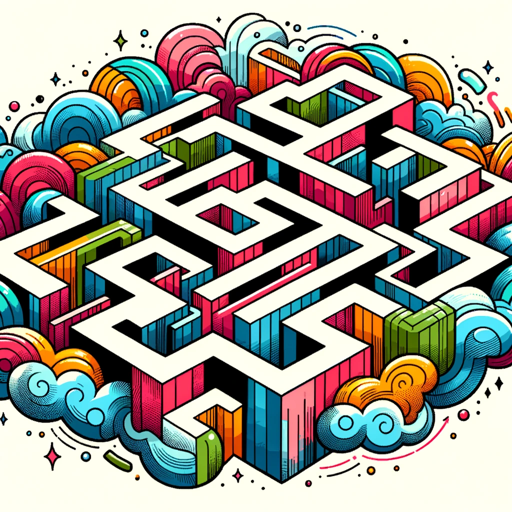Code Challenge - Coding Challenge Platform

Welcome to the Customizable Coding Challenge Generator!
Elevate coding skills with AI-driven challenges
Create a beginner Python challenge.
Give me an advanced JavaScript exercise.
Design a custom SQL challenge.
Create an intermediate C++ problem for me to solve.
Get Embed Code
Introduction to Code Challenge
Code Challenge is a specialized GPT designed to generate and facilitate coding challenges and exercises tailored to specific user needs, including difficulty level, programming language, and problem type. Its core mission is to enhance learning and skill development in software engineering and programming through a variety of engaging, custom challenges. From simple algorithmic puzzles for beginners to complex software development tasks for advanced users, Code Challenge offers a diverse range of problems suited for individuals at any stage of their coding journey. For instance, it can generate a beginner-level Python exercise focused on basic control structures, or an intermediate-level challenge in JavaScript that requires the implementation of complex data structures. The design purpose behind Code Challenge is not only to provide practice problems but also to encourage community interaction by allowing users to share, discuss, and collaborate on coding challenges. Powered by ChatGPT-4o。

Main Functions of Code Challenge
Generating Customized Coding Challenges
Example
For a user looking to improve their understanding of recursion, Code Challenge can generate a series of problems focused on recursive algorithms, varying in difficulty from simple factorial calculations to more complex tree traversal techniques.
Scenario
In a classroom setting, an instructor can use Code Challenge to generate and distribute tailored coding exercises for their students, ensuring that the problems match the current learning objectives and difficulty levels appropriate for the class.
Facilitating Community Engagement
Example
Users can share custom challenges they've created or solved, inviting feedback, solutions, and discussion from the community. This function fosters a collaborative learning environment, encouraging users to learn from each other.
Scenario
A coding bootcamp cohort uses Code Challenge to run a weekly coding contest, where students submit their own challenge designs. Peers review and attempt to solve these challenges, promoting a sense of community and collaborative learning.
Adapting to Various Programming Languages
Example
Depending on a user's preference or requirements, challenges can be formatted for a wide range of programming languages, including Python, JavaScript, C++, and more, allowing users to practice in their language of choice.
Scenario
A developer looking to switch from Python to Rust can use Code Challenge to generate exercises specifically in Rust, helping them to familiarize themselves with the syntax and idiomatic patterns of the new language.
Ideal Users of Code Challenge
Programming Students
Students learning programming, whether in formal education settings like universities or through online courses and bootcamps, can benefit greatly from the customized challenge generation to practice specific concepts and improve their problem-solving skills.
Educators and Instructors
Educators can utilize Code Challenge to create a variety of exercises tailored to their curriculum needs, making it an effective tool for enhancing lesson plans and providing students with practice problems that align with their learning objectives.
Professional Developers
Developers looking to sharpen their skills, learn new programming languages, or prepare for technical interviews can find Code Challenge invaluable for personalized practice and growth in specific areas of software development.
Coding Enthusiasts and Hobbyists
Individuals who enjoy coding as a hobby or are part of coding clubs and communities can use Code Challenge to engage with others, challenge themselves with new problems, and continuously improve their coding abilities through a fun and supportive platform.

How to Utilize Code Challenge
Begin with a Visit
Start by accessing yeschat.ai to try Code Challenge for free without any login requirements, bypassing the need for a ChatGPT Plus subscription.
Select Your Focus
Choose the programming language and difficulty level you're interested in, from beginner to advanced topics in languages such as Python, Java, and C++.
Explore Challenges
Navigate through a variety of coding challenges ranging from algorithmic puzzles to software development tasks, selecting those that match your interest or learning goals.
Engage with the Community
Share your solutions, get feedback from peers, and discuss different approaches to solving challenges, fostering a collaborative learning environment.
Continuous Learning
Regularly check back for new challenges, utilize the resources provided for learning, and track your progress over time to enhance your coding skills.
Try other advanced and practical GPTs
Challenge Companion
AI-powered support for your personal challenges

Endless Challenge
Explore, Engage, Excel with AI

Challenge Coach
Empowering Growth Through Challenges

Programming Challenge
Elevate coding skills with AI-powered challenges

Challenge Impossible
Unleash Creativity, Solve Any Challenge

Architect's Challenge
Stimulating Architectural Discourse with AI

Charming Challenge
Commanding AI for decisive guidance.

Challenge creator
Empower Learning with AI-Crafted Quizzes

Data Surfer
Empowering data collection with AI

Surfer Sage
Unleash wisdom with AI-powered insights

Surfer Sage
Catch Wisdom on AI Waves

Surfer Dude
Ride the Wave of AI-Powered Chats

Frequently Asked Questions about Code Challenge
Can I submit my own coding challenges?
Yes, Code Challenge encourages users to submit their own coding problems, allowing for a diverse range of challenges that reflect real-world scenarios and enhance the learning experience for the community.
Is there a way to track my progress?
Code Challenge offers progress tracking features, enabling users to see their improvements over time, identify areas for further development, and set personalized learning goals.
Can I interact with other users?
Absolutely. The platform is designed to promote interaction among users, including sharing solutions, providing feedback, and engaging in discussions about different coding approaches and problem-solving strategies.
Does Code Challenge support all programming languages?
While Code Challenge covers a wide range of popular programming languages, including Python, Java, C++, and JavaScript, we are continuously working to add more languages based on community feedback and demand.
How does Code Challenge adjust the difficulty of challenges?
The platform categorizes challenges into different difficulty levels, from beginner to expert. It uses user feedback and performance metrics to adjust and recommend appropriate challenges, ensuring a tailored learning experience.
